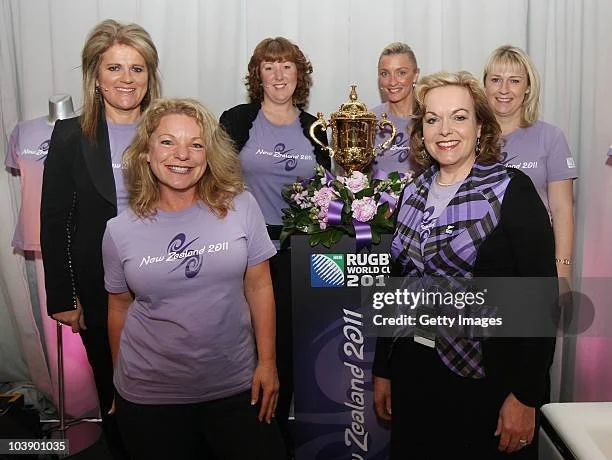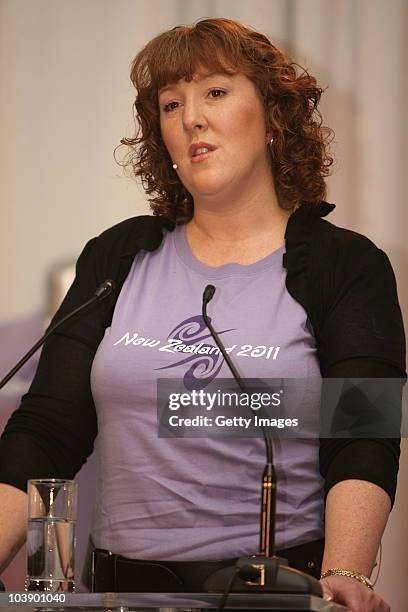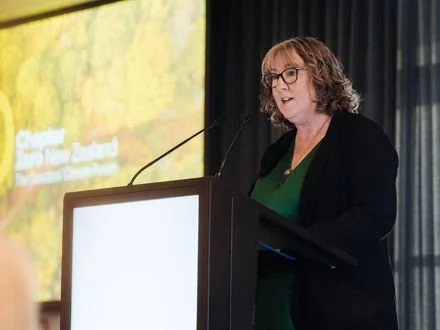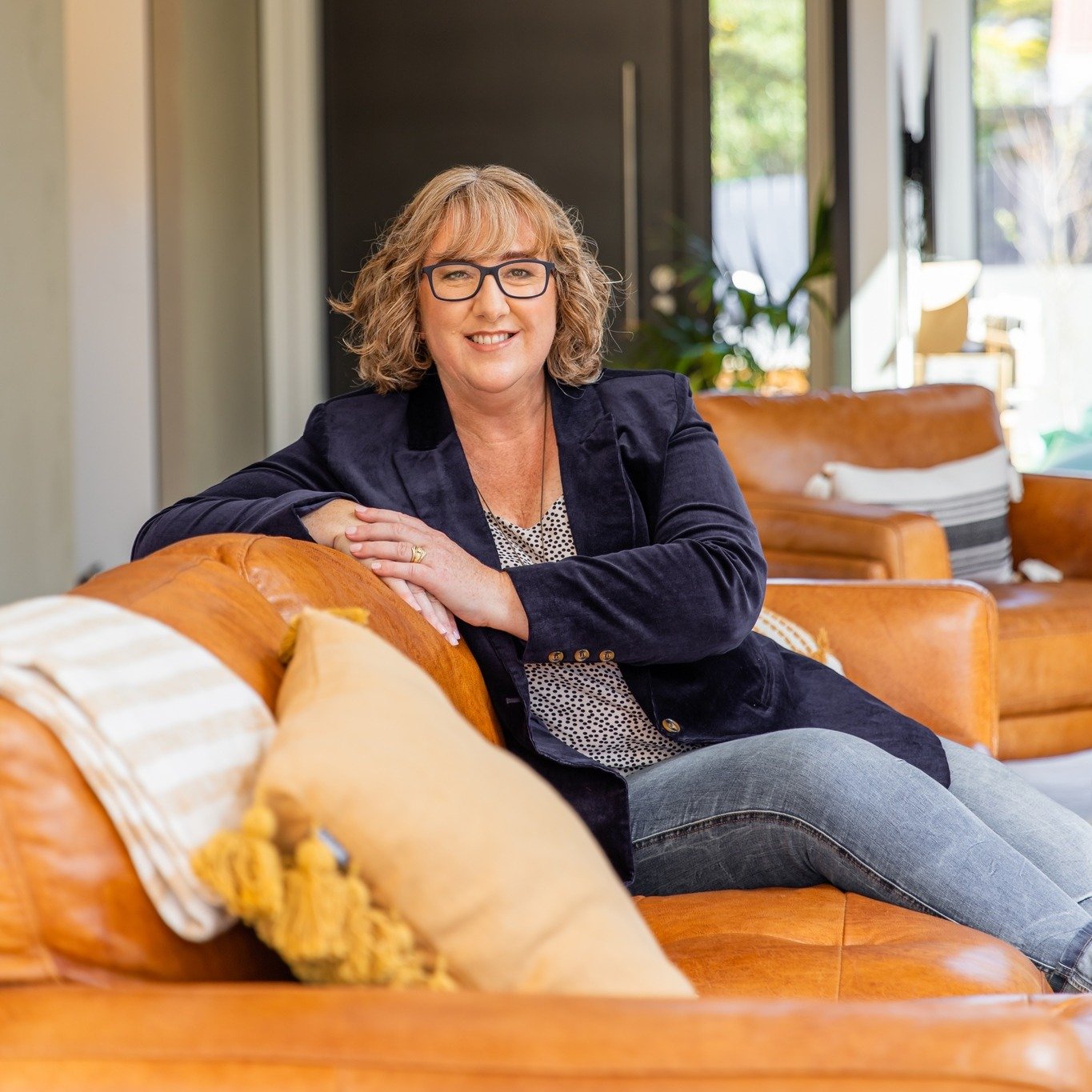Kirsten Patterson MNZM
Haven’t got much time on your hands? Click here to read the key points.
In this Pinnacle Post interview, Kirsten Patterson - Chief Executive of the Institute of Directors NZ - shares candid insights on ethical governance, diversity and inclusion, and building resilient organisations. From formative career lessons to navigating complex stakeholder environments, she offers practical guidance on board accountability, purpose-led leadership, and creating pathways for emerging directors across Aotearoa New Zealand while delivering actionable takeaways for anyone shaping strategy and culture.
Q: What did you want to be when you were growing up?
A: I grew up in Whakatane, and my parents were funeral directors who owned a chain of funeral homes. We lived on the funeral home property, so I was truly immersed in the family business and thought I would follow in their footsteps and maybe run the business myself. I even started doing funerals while I was in high school. Thankfully, my dad recognised that wasn't going to be enough for me, and he insisted I attend either law school or medical school before he would give me a job in the family business. I even went on and completed my funeral directing qualifications while I was studying at Waikato University.
Q: You studied law at Waikato University. Did you intend to practice law right away?
A: I was a reluctant lawyer. I never intended to be one; it was something I had to do until I could move on and go back into the family business. I’m embarrassed to admit that one of the things that attracted me to Waikato at the time was that their law degree was only four years, while everywhere else was five. It wasn't until my last year, when I had Margaret Wilson, the Dean, as my employment law lecturer, that a light went off. I finally saw how law could be useful.
I was a reluctant lawyer. I never intended to be one; it was something I had to do until I could move on and go back into the family business.
Q: Your path quickly moved into employment relations and Human Resources (HR). Was that shift intentional?
A: When I found employment law, I realised, "Wow, this is my thing". I worked briefly as an employment lawyer but very quickly moved into the people side of the business, using those skills to get into human resources. That transition opened up amazing opportunities for me, including working with great brands such as New Zealand Rugby.
Kirsten in her earlier days.
Q: New Zealand Rugby is a huge brand. What was your experience like there?
A: I went there initially as the HR manager. It was a pivotal time as they were looking for someone with employee relations skills as they introduced the first players collective contract and the first salary cap. It was ironic because I had virtually no knowledge of rugby. I was interviewed by Steve Tew and Dame Therese Walsh (then Therese Walsh), and I absolutely clicked with them. Meeting Therese was a hugely pivotal turning point in my career. When Therese left, I took her role, expanding my management career into broader roles such as corporate services. I learned what excellence looks like and saw the power of a brand.
Q: You mentioned Dame Therese Walsh was a defining person in your career. What made her such an influential leader?
A: She is a phenomenal leader and a person who highly develops others. She creates space and brings people through. She doesn't just mentor people; she sponsors them, pushes them, challenges them, and creates space for their growth. She’s one of those people who talks about you positively even when you're not in the room.
She doesn't just mentor people; she sponsors them, pushes them, challenges them, and creates space for their growth.
Kirsten with Julie Christie, Kerre Woodham, Rachel Dacy, Judith Collins and Dame Therese Walsh at the Women for Rugby World Cup 2011 breakfast.
Q: Following rugby, you moved into professional organisations such as Chartered Accountants and the Institute of Directors (IoD). What drew you to that sector?
A: My first employment law role after finishing at Waikato University was at a membership body called the Employers & Manufacturers Association and then for a bus company so I had a taste of professional organisations early on. The organisations that I have since worked for have similarities, even if they look different on the outside. For instance, rugby, at its core, is an incorporated society - a not-for-profit with deep stakeholder relationships and complexity. The IoD is similar. What motivates me is the complexity of relationships, stakeholders, and the ability to use the organisations I lead to create systemic or societal change. With the IoD, that means influencing leaders because better governance leads to better businesses and better communities, which is better for New Zealand. I enjoy the ability to influence at scale; it’s soft power, requiring influence through others across the whole system.
What motivates me is the complexity of relationships, stakeholders, and the ability to use the organisations I lead to create systemic or societal change. With the IoD, that means influencing leaders because better governance leads to better businesses and better communities, which is better for New Zealand.
Q: Many young professionals are aspiring to governance roles today. Where did your governance journey begin?
A: Like many of us, I first got involved in not-for-profit governance through something I was personally involved in, specifically the Plunket board. My first proper board role, however, was Fraser Park Sportsville. That role resonated with me because it was a nice overlap with my skills - I had the sports connection from my rugby experience and general business skills from my day job. Crucially, I cared enough about the project to put the necessary effort into an unpaid not-for-profit role as it was creating new shared facilities for multi-clubs in our region.
Q: Looking back, what were the most career-defining moments that shaped you?
A: Without a doubt, my law degree from Waikato. It established credibility early on, particularly as a young female professional. I would hear things like, "Oh, but you at least you have a law degree, haven't you?". It gave me an uplift in credibility, especially when I moved into the HR field, that many of my HR colleagues didn't have.
The other was meeting Steve Tew and especially Dame Therese Walsh.
Finally, one of the defining things that allowed me to succeed is my public speaking skills, even though it’s the thing I hate the most. I am an introvert and hate networking, and I really don't like public speaking. Early in my career, I was so nervous that I would be sick before public speaking. I remember having to do a series of presentations for work and I was so nervous that they hired a speaker coach for me. I ended up doing such a good job due to my over preparedness that I was asked to do more. People see you on the summit, but they don't see the work that goes into it. I still work on it; I try to limit my public speaking to no more than three times a week because it affects my nerves. I’ve even used hypnotherapy and up until last year I was still working with a presentation coach to control my nerves.
I try to limit my public speaking to no more than three times a week because it affects my nerves. I’ve even used hypnotherapy and up until last year I was still working with a presentation coach to control my nerves.
Q: What are your career highlights and lowlights?
A: A major career highlight was working on the Rugby World Cup project in 2011. It was a six-year, beautiful, amazing project. It was an honour to see the best of New Zealand and deliver that, though it was incredibly stressful. I also count the non-sexy highlights - seeing a shift in someone, or hearing that something has changed in a business or boardroom because of something I've said or done.
In terms of lowlights, it has been the times when I've worked with someone where there hasn't been a values connection. There was one particular example where I made a choice that I knew was wrong: I took a job for money. They kept increasing the money until it became irresistible. While I did good things there, my motivations were wrong going into that role.
Kirsten presenting at the Women for Rugby World Cup 2011 breakfast.
Q: Given the significant responsibilities and workload you handle, how do you manage stress and life outside of work?
A: I often joke that to be a lazy CEO like me; you hire good people and then you get out of their way. You can only progress as fast as the team you build around you. Attracting and retaining great people is a huge part of managing my workload because I trust them to do their thing, which allows me space for other things.
You can only progress as fast as the team you build around you. Attracting and retaining great people is a huge part of managing my workload because I trust them to do their thing, which allows me space for other things.
I had to consciously decide to stop fighting the travel. This year, due to an international board role and national travel, I'll be offshore about a week a month and have another 100 nights away from home. My husband provides huge family support, and I haven't been embarrassed about contracting out when necessary; for example, we had an amazing nanny for eight years. It takes a village to raise a child, and I firmly believe it also takes a village to raise a career.
It takes a village to raise a child, and I firmly believe it also takes a village to raise a career.
Q: Many of our readers are considering their OE (Overseas Experience). Did you do one, and what advice would you give them?
A: I was too scared to, and it is one of my life regrets. I didn't have the confidence to do my OE; I was an only child and introverted. I think I'm the poorer for it. I highly recommend that young professionals go and explore the world. Take your 'New Zealandness' to the world, go explore and bring new ideas back.
I highly recommend that young professionals go and explore the world. Take your 'New Zealandness' to the world, go explore and bring new ideas back.
Q: For those aspiring to governance, what practical steps should they take to get involved?
A: Definitely get involved. If you want to drive change and have a big impact, governance is the place to be. Most of us start our careers in not-for-profit governance. Find something you’re passionate about.
For commercial board roles, which are more difficult to obtain, you must use your networks as many are not advertised. You can also ask about the Future Director program. That’s where you act as an observer in the boardroom for 12 to 18 months; you’re not a board member, but you participate in all conversations. If a commercial business doesn't have an observer program, approach them and suggest starting one with you as their first future director.
If a commercial business doesn't have an observer program, approach them and suggest starting one with you as their first future director.
Q: What do you see as the biggest challenges facing governance in the future?
A: Everything. Every issue is a governance issue, whether it’s equal pay, climate change, geopolitics, cyber security, or AI (artificial intelligence). If you distil all that down, the core challenge is: How do you make choices, judgements, and decisions about an uncertain future in a volatile environment on imperfect information?
Every issue is a governance issue, whether it’s equal pay, climate change, geopolitics, cyber security, or AI (artificial intelligence). If you distil all that down, the core challenge is: How do you make choices, judgements, and decisions about an uncertain future in a volatile environment on imperfect information?
Boards must focus on the horizon and creating long-term value. They are left with the tricky things - weighing up trade-offs like financial stability versus climate investment, or AI impact versus ethical privacy concerns. Usually, they are choosing between two good or two bad outcomes - it's rarely black and white.
They are left with the tricky things - weighing up trade-offs like financial stability versus climate investment, or AI impact versus ethical privacy concerns. Usually, they are choosing between two good or two bad outcomes - it's rarely black and white.
Kirsten presenting.
Q: What does Kirsten Patterson stand for?
A: I would say the characteristics I stand for would be ethical leadership. That involves courage - speaking up on issues that are difficult and tricky - and caring about people. I sometimes describe it as entrepreneurial guardianship; I use business to bring a voice to ethical, values-based leadership.
Q: Since our audience is primarily young professionals starting to think about their financial futures, do you have any advice or wisdom to offer?
A: Get involved in the share market and start investing early. Whether it's through Sharesies or whatever avenue, that's where the real money is to be made. Future KP would have really appreciated it if past KP had gotten her financial house in order earlier instead of shopping and spending.
Get involved in the share market and start investing early. Whether it's through Sharesies or whatever avenue, that's where the real money is to be made. Future KP would have really appreciated it if past KP had gotten her financial house in order earlier instead of shopping and spending.
Q: What advice would you give your younger self?
A: I would tell myself to go and do that OE/travel early. Spread your wings. Remind myself that "You’ll be okay". I think I would have had a bit more courage in a few more places. I might have done some stuff that pushed myself outside my personal comfort zone a bit more. I recognise that I am really great and have great courage when I am advocating for others, but I didn't always demonstrate that courage personally.
Q: Finally, if neither time nor resources were a constraint, what ultimate goal or dream would you pursue?
A: I often joke that my dream job is to be a mystery shopper in Disneyland, because Disney is my happy place. But ultimately, I think I would be working in the for-purpose sector, closer to the social sector. I’d be doing something like the work I currently do with the Wellington Homeless Women's Trust or Voices of Hope, trying to bring impact for that sector.
Kirsten in an interview for Avenues.
About Institute of Directors
Institute of Directors NZ (IoD) is the leading professional body at the heart of New Zealand’s governance community. Dedicated to supporting directors and aspiring leaders, IoD offers expert resources, accredited training, and a vibrant network to advance good governance across Aotearoa New Zealand. Whether you’re new to boardrooms or experienced in guiding strategy, the Institute equips members with skills, insights, and connections to drive impactful leadership.
Visit the website here: https://www.iod.org.nz
About New Zealand Rugby
New Zealand Rugby (NZR) is the national body powering one of the world’s most iconic sporting legacies. Championing rugby across Aotearoa New Zealand, NZR fosters talent from grassroots clubs to the All Blacks and Black Ferns, and drives inclusion, innovation, and community impact on and off the field while continuing a legacy that inspires fans locally and globally.
Visit the website here: https://www.nzrugby.co.nz/
About Employers & Manufacturers Association
The Employers & Manufacturers Association (EMA) supports businesses across Aotearoa New Zealand with practical employment relations advice, legal support, training and development programmes, and policy advocacy. From HR guidance and compliance to leadership upskilling and member networking, EMA helps organisations navigate change, lift capability, and grow with confidence.
Visit the website here: https://ema.co.nz/
About Fraser Park Sportsville
Fraser Park Sportsville is Lower Hutt’s largest recreational sports hub, set across 27 hectares in the heart of the Hutt Valley. Anchored by the award‑winning, multi‑use Ricoh Sports Centre, it brings together local clubs and codes from rugby and football to cricket and squash while offering modern facilities and a vibrant community focus. A flagship space where partnerships thrive, it champions participation and sporting excellence across Aotearoa New Zealand.
Visit the website here: https://fpsportsville.org.nz
About Plunket
Plunket New Zealand is the country’s largest provider of care, support, and advice for tamariki under five and their whānau. Through free health checks, parenting resources, and community programmes delivered by dedicated nurses and volunteers, Plunket helps families thrive across Aotearoa New Zealand.
Visit the website here: https://www.plunket.org.nz/
About University of Waikato
The University of Waikato is a leading tertiary institution in Aotearoa New Zealand, renowned for innovative research, diverse academic programmes, and a vibrant campus culture. With world-class teaching and strong industry connections, Waikato empowers future-ready graduates to make real impact across New Zealand and beyond.
Visit the website here: https://www.waikato.ac.nz/






